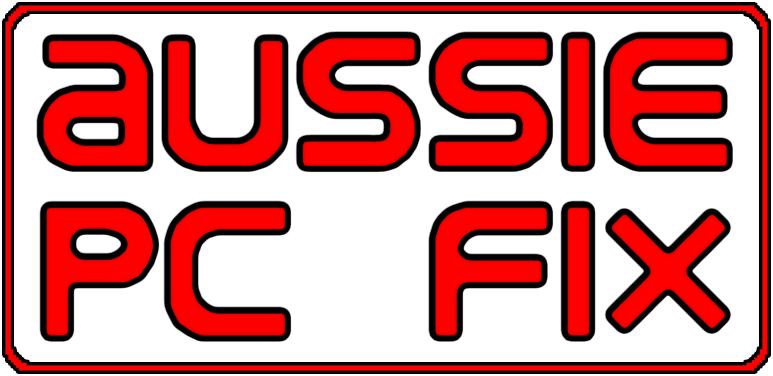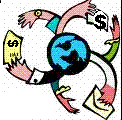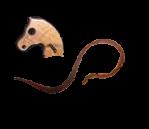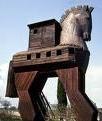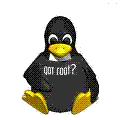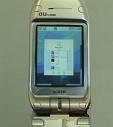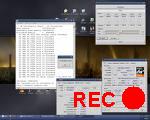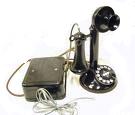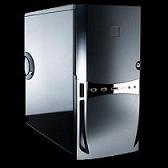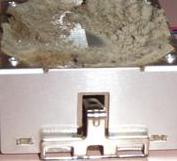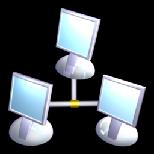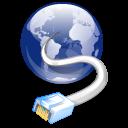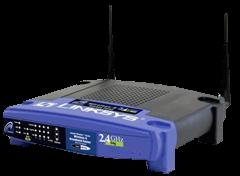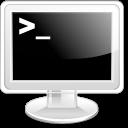$140 per hour onsiteor drop off from $140 |
|---|
Virus and Spyware Removal  Aussie PC Fix
Aussie PC Fix  Canberra
Canberra
Aussie PC Fix guarantees complete removal of all viruses, spyware, and any other unwanted or malicious programs (malware) from your computer. The relatively new threat of spyware is much more common than a virus infection and often causes computer slow downs and program or Microsoft Windows errors.
Antivirus programs only detect a small percentage of spyware, and while the antispyware programs do their best it's evident that not one security program seems to be able to keep up with the hundreds of newly released spyware each day and sometimes manual removal can be the only option.
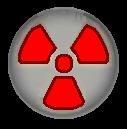


Contact Aussie PC Fix today via our Online Booking Form or call
0410 628 935 for quick removal of viruses, spyware and other types of malware from your computer.
We can also help you prevent infections by recommending and installing antimalware and security programs to keep you well protected from the above malicious programs.
We can get your computer free of nasties with our guaranteed removal service. If your computer is acting strange/slow, you are having Internet problems, or your PC is displaying adverts then you probably have a spyware or similar infection.
Aussie PC Fix use a combination of scanners and specialised tools to analyse your computers files, programs and their behaviour to remove any spyware or other infections. We can also inspect your hard drive without running from your Windows installation because an existing infection can hide itself from Windows and any other programs including security software.
Removing spyware can be a complex task which can only be learnt through experience. After removing hundreds of infections you can see particular patterns and then learn to recognise similar infections. This is important because knowing from exactly which family your spyware or viral infection is based on can help in it's removal, as the behaviour and files used will also be similar.
Downloading a free antispyware program is a great first step for spyware removal which you could do yourself. Make sure you download a trusted antispyware product such as Spybot or another product that is recommended, but only by someone you trust or on at least another dozen websites!
There are certain review websites out there that will recommend downloading antispyware products that are actually spyware in disguise, or they are set up with the sole purpose to get a commission on any of their recommended products you buy. See below for more information on these fake/rogue antispyware products.
Aussie PC Fix does resell several Antivirus and Internet security products available at discounted prices!
After being constantly asked what the best antivirus software is, we have chosen what in our opinion are the best two antivirus / firewall products made and decided to resell them for easy purchase onsite by our customers.
We have now also enabled purchasing licenses online because we want all users around the world - not just our Canberra customers - to have the best protection possible! We pick the best, not the most profitable, because our happy customers keep coming back!
Getting infected with Spyware
Getting infected with spyware is unfortunately all too easy if you have not secured your system specifically against spyware. Having antivirus and a firewall is not enough because most spyware is not detected by antivirus and will go straight through hardware firewalls.
You can infect your computer with spyware just by visiting a bad or hacked web page. Because Internet Explorer (IE) is the most popular web browser, it is also the most targeted by malicious code writers. Firefox is a great alternative to Internet Explorer and is regarded as a much safer browser to use on Windows and it will prevent most spyware infections, though nothing is completely secure!
Spyware is also commonly bundled secretly with other programs, for example some 'free' screensavers, games, and email icon programs will also install spyware that track your computer. Aussie PC Fix will check all your running programs/processes as well as every single program that is installed on your computer. This not only removes the security and privacy threats. but usually improves Windows overall speed and boot time, and can also get rid of errors and problems with Internet Explorer and other legitimate programs.
Please make sure you don't download or buy any Rogue Anti-Spyware Products that pretend to be antispyware but are actually spyware themselves! If you're already infected with these products, they can display advertisments stating you are infected with some other false or otherwise unrelated virus or spyware - and you must buy their product to get rid of it. If you mistakenly download these rogue products, they will usually scan your computer and present you with some false results saying that you're infected and must upgrade to the full and non-free version of the program to remove the spyware.
These products are not real antispyware and when tested with known infected computers, usually don't remove any real infections, but pretend to remove your spyware infection that no other product could remove ...because it didn't exist in the first place! Your original spyware infection is alive and well, but they will keep you happy for a while after purchase before displaying adverts again, if you're not getting adverts from multiple real infections it failed to remove anyway.
Software (or Personal) firewalls can usually help detect spyware infection but are not foolproof, especially if spyware has hijacked Internet Explorer. Many antivirus and Internet security products have started including spyware protection, but the effectiveness of these can be even worse than their bundled spam filtering products which also leave a lot to be desired!
Contact Aussie PC Fix today via our Online Booking Form or call
0410 628 935 for quick removal of viruses, spyware and other types of malware from your computer.
Spyware, Viruses and Malware
What is a virus?
A virus is a program that is written as a joke, to cause damage, or to make money, but the main function of a virus is usually simply to spread to other computers. Early viruses were mostly people playing pranks or someone wanting to show off. But because computers will perform whatever action you tell them to do (within their limits of course!), viruses can easily be created to fulfill whatever needs the virus creator has in mind.
Many viruses damage user files or corrupt system files, but sometimes this is just an unintentional side effect of a virus trying to spread, in other cases it is a targeted or random attack made to cause damage .Viruses have grown in number and become much more complex over the years, while our computer antivirus software has also had to develop new methods to detect and remove them.
Viruses developed several important characteristics over the years to improve their spread and survival. They developed stealth techniques to make their detection and removal more difficult by hiding themselves, and can run in the background without the user detecting it. Trojans are injected into otherwise useful files so users are more likely to purposely run the file to use the program, infecting themselves with hidden code at the same time. Rootkits were developed that change the code beneath Windows itself so that programs running on the infected computer (including Windows itself!) cannot even see these hidden files.
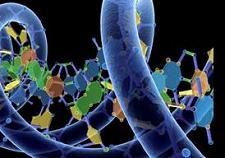
Viruses were also easy to detect by antivirus software because they just needed a sample and that fingerprint would be added to the virus definition database. When a file with that pattern was found, it could be flagged and removed. Virus creators then started to give their viral releases real world characteristics of a virus, for example the virus code can now change or mutate each time a new infection occurs.
This code-changing ability called polymorphism makes the virus much harder to detect because now the fingerprint or signature changes each time it spreads. If the virus can change itself enough, it will remain undetected. Antivirus had to fight back and developed better strategies to deal with the advancements in virus technology. With the huge increase seen because of the ease of transfer via the Internet, it will always be a cat-and-mouse game between the malicious coders and our protectors.
The Internet also helped distribution of viruses with thousands of new and unprotected computers connecting each day, along with the millions of others already online. The virus writers started to develop code that would actively seek out other computers and infect them.
The worm turned viruses into living code that once released into the wild can spread very rapidly over the Internet, automatically infecting as many computers possible then using those hosts to infect even more computers. Read on after the spyware section for more on RATs, bots, zombies and other types of viruses and malware.
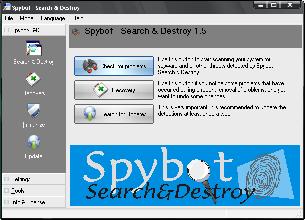
Spybot is a popular antispyware program
What is spyware and adware?
Viruses can cause a lot of damage, but they usually do not make any money for the virus coder unless they were specifically hired to do the job. Virus creators could get fame but not fortune, though the criminals soon discovered that with thousands of new potential victims connecting to the Internet each day, this could be a potential goldmine to make money if they could just find someone to finance them and pay for their work.
The Internet has always been plagued by advertising, as it is one of the only true tried and tested revenue sources that actually works. People are willing to pay quite a lot of money to get clicks on their site and product, so it was inevitable that infections started planting software that was paid by advertisers and marketers - with some they just need to add their affiliate link! Legitimate software makers also saw it as an easy revenue making model by making their software free to the user but bundling spyware to make money instead.
Kazaa was a famous Australian example of a useful program with bundled spyware. It included Cydoor, GAIN/Gator, eUniverse, MyBar, SaveNow, WhenU. Other popular infections removed recently include: 180 Solutions, CoolWebSearch, Dope Wars, ErrorGuard, Grokster, HuntBar, Internet Optimizer, DyFuKa, Morpheus, WeatherBug, eDonkey2000, Smitfraud, WildTangent, WinTools, Zango.
Spyware is malicious software that tracks your computer usage and may display advertising on your computer screen. They can change your Internet Explorer or other web browser startup pages, display annoying popups, or add shortcuts to your Favourites list. The can also add Internet shortcuts to your desktop which are advertising links or direct you to sites with other infections ready to be automatically downloaded.

Popular fake/rogue antispyware: ErrorSafe, System Doctor, MagicAntiSpy,
SpyAxe, SpyShredder, Spy Sherrif, UltimateCleaner, WinAntiVirus Pro, WinFixer
This new generation of infection with the pure intention to make money for the code writers and others led to the terms spyware and adware, to differentiate them from the traditional virus. Viruses are still being spread, but spyware is the biggest threat because of the large number of variations being created every day, so far there isn't one product that can cope with it all.
It's also a good idea to run several antispyware programs simultaneously and do not rely on your antivirus product to protect you from spyware. Some antivirus products are starting to include antispyware, but from test results by Aussie PC Fix and from various reviews it seems the job is best left to a dedicated antispyware program to at least have a proper chance of detection and removal.
Spyware programs usually upload logs of every web site that you visit and sell your data to marketing companies, or they can record every keystroke and mouse click that you make which can be a serious security issue if your passwords, credit card, or other personal details are sent over the Internet for use by the hacker.
Adware refers to a particular group of spyware that focuses on displaying advertising on your computer. This is usually easy to spot as the bombardment of unwarranted advertisement pop-ups are a giveaway sign of infection. Unfortunately for families with children, the most common advertising is adult orientated, or the ads will have links to fake antispyware programs that are actually spyware themselves.
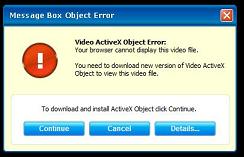
Contact Aussie PC Fix today via our Online Booking Form or call 0410 628 935 for quick removal of viruses, spyware and other types of malware from your computer.
Spyware is different to a virus because spyware is not meant to harm your computer, though it often does. The reason for spyware is also nearly always financial, and companies are making millions each year by infecting computers worldwide.
Spyware is not designed to hurt your computer because it's in the creator's interest to infect your computer for as long as possible to make the most amount of money. Unfortunately spyware is often poorly coded and because of the many different ways it attempts to get around your security it can cause stability and speed issues for Windows, especially Internet Explorer.
When multiple spyware infections occur on a computer spyware programs can end up competing with each other, each trying to intercept your data first. Each piece of spyware will infect your system in different ways and the results can be unpredictable. A computer with dozens of infections is not uncommon, with most people eventually realising something must be wrong when their computer gets noticeably slower, shows strange behaviour, or starts displaying errors or crashing.
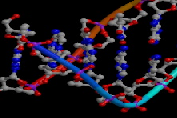
Malware, Badware, Grayware ...and the rest!
Worms, Trojans, Rootkits, RATs, Bots, Botnets, and Zombies, Loggers, Diallers
Malware, Badware, Grayware...
The term malware is shorthand for malicious software and refers to any undesirable software installed on a computer. Malware, Badware, and Grayware all describe unwanted software that is usually installed without the computer users' permission (or, for example, on page 67 of a 200 page software license shown an inch at a time!). Viruses are officially included within the definition, but some also use it to mean 'malicious software except a virus'.
Other terms seen coined around the Internet include theftware, stealware, hijackware, exploitware. Ransomware is worth a mention - it's where criminals encrypt your files on your hard drive, then demand ransom money for the password to get your data back!
Because all malware needs to infect your system and spread to other computers, they use similar methods to achieve this so we categorise them into various different types. There is a large overlap of definitions because many types of malware use multiple methods of delivery, infection, payload (the main action the code performs), stealthiness, and replication - these are called blended threats. Below are just some of the popular types of malware that can compromise computer systems.
Worms
Worms were quickly released over the Internet from it's beginning with the infamous Morris worm in 1988 taking credit for the first significant network infection. This worm was apparently not intended to cause harm but due to a coding error it would reinfect the same computer over and over again and slow the computer and network down.
A worm is distinct to a virus because it uses the network or Internet to replicate itself and spread. A virus needs to be activated by the user by running it, only then will it infect other files on the system. A worm effectively lives on the network trying to infect as many computers as it can reach, without any user intervention. Most viruses today are actually worms or have some worm-like functionality, but technically a worm is not actually a virus. A worm is often called a type of virus but the term worm more precisely refers to the method of distribution through a network and its automated infection.
Trojans
A Trojan Horse, or simply Trojan, is a program that pretends to perform a particular task, but instead (or also) performs another function such as virus infection. Most Trojans install other malware or hide malicious code in the running program, they are most popular for delivering RATs or bots.
The word Trojan Horse comes from the legendary Trojan War when Greek soldiers were hidden inside a large wooden horse and given as a peace offering to the city of Troy in the Trojan War..
Spyware is often delivered similarly to a Trojan by secretly being bundled and installed with other programs.
Rootkits
A rootkit is a special type program that infects a computer deep inside the operating system, at its root. The term root actually comes from Unix/Linux and is equivalent to full administrator access in Windows. The term is used because rootkits can bury themselves underneath the operating system so they're hidden from Windows itself. Rootkits are usually used to hide infection and make removal of the infection more difficult. They modify Windows system files so that its own files are invisible to Windows and other programs.
This design makes rootkits extremely hard to detect because as far as any program running in Windows is concerned, and even Windows itself, it simply doesn't exist. Rootkits have been used by security software since inception to give us the best possible security. They detect viruses before they have a chance to run because they have modified Windows to route files through their virus filter first, using low-level system functions.
Windows Vista proved a great challenge to antivirus and security program writers because Microsoft changed the way any program could access the operating system and the hardware. This gave Vista a security boost because it stopped many ways the operation system could be compromised, but the security program authors had to develop different ways for their own programs to work with this new system.
Rootkits can also be used legitimately in commercial or software (e.g. Daemon Tools and Alcohol CD/DVD emulators), but also abused by others apparently with our best interests at heart such as in the Sony DRM Rootkit scandal.
RATs (Remote Administration Tool)
Remote Administration Tools were originally designed for system administrators to use a computer from a remote location over a network. RATs usually let you view a computer screen as if you were sitting in front of the computer and are still popular today for remote logins. Windows XP and Vista have remote access built in, and tools such as VNC are very popular..
Virus writers quickly borrowed this technology, usually hiding the software in a Trojan, and soon it was possible for a hacker to have complete control over a computer from a distance. In fact, some RATs included handy short cuts to system functions which give the hacker easier and more control of Windows than the user in front of it!
RATs are also sometimes called Remote Access Trojan, which specifically refers to a Remote Administration Tool used in a malicious way which also uses the popular Trojan as a distribution method. A RAT is a type of backdoor, because it allows remote access without the users' permission.
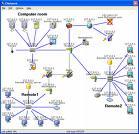
Bots, Botnets, and Zombies
An Internet Bot (from robot) is like the next generation Worm, not only spreading far over a network but also performing automated functions for the creator. The functionality of a bot is usually more complex than a worm, but like a worm may actually be legitimate - such as when the Google Bot spiders (indexes) the Web and Internet to deliver our search results, but increasingly bots are being used to control hundreds or even millions of computers for malicious or money making uses.
Botnets leverage the benefits of distributed computing, were many computers combined can offer a lot of computing and networking power. When someone infects multiple computers, this forms a Botnet and can harness a lot of power stealing other people's resources, such as their processor usage, memory, disk, and Internet/network connections.
A Zombie is an infected computer that awaits commands from its controller and is usually part of a Botnet. Many use hidden remote administration tools to control the computer and this activity is usually not noticed by the user, hence you have a zombie computer. Most SPAM is sent by Zombies and they can be told at any time to send one hundred or one million emails using your Internet connection. Since many ISPs try to stop the sending of SPAM, this may also get your email or connection blacklisted.
Botnets and Zombies are also used to launch attacks on a network or computer server called a Denial of Service (DoS) attack. By attempting to connect to a computer many times in short succession, it is possible to overload a server and so deny others to be serviced by it. By using a botnet, hackers can create a Distributed DoS (DDoS) attack which is extremely hard to protect against because the attacks are initiated by many different computers at the same time. Many large companies have been targeted at some time by DoS attacks, some successful enough to bring very large websites and networks down.
Loggers
Loggers can come in several forms, but all record some type of user input into the computer. Keystroke loggers were the first to appear, and are the simplest, as they simply record everything that is typed on the keyboard by the user. You should never store your passwords in a file on a computer as this can easily be found and transmitted to hackers, but loggers are designed to record your passwords and other information as you are actually typing them in to gain access to a website or other resource.
Loggers are a common way to steal passwords, credit card details and bank account information and can also lead to identity theft. The logs can be sent to a predefined Internet site or are sent by email to the hacker at a regular interval.
Some web sites, particularly online banking sites, have tried to combat this attack by using pictures instead of a password, or pictures of number keypads with random number positioning so that keystroke loggers cannot record this information.
Unfortunately the logger coders also became more advanced and starting writing screenshot loggers which take periodic snapshots of your computer screen, and even video capture loggers which can record your screen like a video to see exactly what your doing.
Diallers
Diallers are less popular than they used to be because they require an older dial-up modem to work, but since most people now connect to the Internet via broadband, these programs do not work unless a 56k modem is also connected to the computer and phone line.
A dialler changes your dial-up settings so that instead of calling the number of your ISP when you 'dial up', it calls a premium rate number e.g. at $5 per minute. Usually they delay the bill for at least a month, so you can easily rack up a bill in the hundreds of dollars without knowing during that time.
Contact Aussie PC Fix today via our Online Booking Form or call
0410 628 935 for quick removal of viruses, spyware and other types of malware from your computer.
We can also help you prevent infections by recommending and installing antimalware and security programs to keep you well protected from the above malicious programs.
Current service rates are $70 per 30 minutes
plus callout fee if applicable
Call out fees:
$50 - Canberra (except Gungahlin, Mitchell)
$90 - Gungahlin, Mitchell and Queanbeyan
Minimum fee of $70-$140 per device for diagnosis,
then charged $70 per half hour block.
Call today on 0410 628 935
or Book Online to arrange your service
Aussie PC Fix Canberra
Computer and IT Services
Aussie PC Fix provide reliable, efficient and friendly IT support with only qualified technicians that will help solve your computer problem. We guarantee we can fix your computer or there is NO charge. If we offer to fix your computer and you decline the suggested fix then our minimum diagnosis fee is payable. We guarantee you will be happy with your computer service or we'll repair it again for free!
Canberra's Aussie PC Fix are here to help you with a wide range of computer, networking and other IT services for business or home computer users in Canberra, ACT, Australia. Call us today on 0410 628 935 to find out how we can help you, or book a service online.
You can trust Aussie PC Fix to always fix your computer problems reliably and efficiently, and at a reasonable price with our services being guaranteed.
We provide expert solutions for all Home Users, Home Office, SOHO, Small Business to Medium Sized Business, SME, Retail and Branch Offices in both North Canberra and South Canberra, as well as Queanbeyan.
We are your Canberra onsite computer support specialists, but also offer drop-off service to our workshop located in Canberra. Pick-up and Delivery is also available, charged at the applicable call-out rate.
If you need help with anyhing not listed above, please contact us online or email support@aussiepcfix.com and ask!
Call Aussie PC Fix today for all your Canberra computer and IT needs!
Current service rates are $70 per 30 minutes
plus callout fee if applicable
Call out fees:
$50 - Canberra (except Gungahlin, Mitchell)
$90 - Gungahlin, Mitchell and Queanbeyan
Minimum fee of $70-$140 per device for diagnosis,
then charged $70 per half hour block.
Call today on 0410 628 935
or Book Online to arrange your service
